May 2024 – COA Patient Advocacy Network News Bulletin
Upcoming Advocacy Chats – Educational Conversations on Cancer Advocacy and Policy Issues
May 15: Pharmacy Benefit Managers: What Patients Need to Know
Pharmacy benefit managers (PBMs) too often interfere with patients’ access to cancer care. On Wednesday, May 15, at 12 p.m. ET, join Rose Gerber, MS, COA’s director of patient advocacy and education, and Debra Patt, MD, PhD, MBA, executive vice president of policy and strategy of Texas Oncology, to learn what patients and advocates need to know. You’ll hear about the latest policy efforts to make PBMs more transparent and patient-focused. Register here.
ICYMI: The Latest Cancer Policy Updates from Washington
This election year, cancer advocates can look out for movement on policies affecting cancer care delivery, access, and cost. Rose Gerber, MS, and Nick Ferreyros, COA’s managing director of policy, advocacy, and communications, discussed major developments from the first half of the year, bills under consideration on Capitol Hill, and COA’s 2024 policy priorities. Stream it on @OncologyCOA’s YouTube channel.
COA Advocates Assemble on Capitol Hill to Keep Middlemen Out of Health Care
On Wednesday, May 8, advocates from 31 states gathered in Washington, D.C. to speak with members of Congress about protecting patients from health care middlemen and ensuring patient access to lifesaving drugs. The COA and CPAN Hill Day was a success, featuring more than 200 meetings where advocates talked to members of Congress and their staff about unlawful restrictions on oral cancer medication delivery and the chance to rein in PBM and insurer abuses, as well as modernizing or eliminating restrictive prior authorization and step therapy practices. Additionally, former COA president David Eagle, MD, testified before Congress on the impact of regulation on small businesses. Read more about the spring Hill Day and advocates’ specific asks on the COA website.
CPAN Chapter Spotlight: Hope Cancer Care of Nevada
Hope Cancer Care of Nevada (HCCN) strives to protect access to independent community cancer care. That’s why the Las Vegas-area practice launched its CPAN chapter in 2023, amplifying patients’ voices and advancing critical advocacy efforts.
As Nevada’s first CPAN chapter, HCCN honors survivors and stands side-by-side with patients. Its advocacy efforts support community oncology at the local, state, and federal levels. With CPAN’s educational resources, advocacy events, and policy intelligence, HCCN continues to help patients stand up for community cancer care.
Learn more about HCCN and other CPAN chapters protecting independent, local cancer care.
Cancer News You Can Use
Colon Cancer Rates Have Been Rising for Decades in Younger People, Study Finds NBC News 05/09
Colorectal cancer rates have been rising for decades among people too young for routine screening, new research from the University of Missouri-Kansas City found. The study focused on rates of the disease in children and adults ages 10 to 44, using data from the Centers for Disease Control and Prevention. Cases of colorectal cancer were on the rise in all age groups, researchers found. Despite the increases, the overall number of cases in people younger than 40 was still low, while cases remained exceedingly rare in people under age 30.
Get Screened for Breast Cancer Starting at Age 40, New Recommendations Say NBC News 04/30
Women should get a mammogram every other year starting at age 40, according to new guidance issued by the U.S. Preventive Services Task Force. The drop in age from prior recommendations is a response to rising cancer rates among women in their 40s, as well as evidence that earlier mammograms help save lives. The rate of breast cancer among women ages 40 to 49 increased 2% per year, on average, from 2015 to 2019, according to the National Cancer Institute
Cancer Trends Revealed, Including Most Common Types of the Disease and Biggest Risk Factors Fox News 04/29
Almost 40% of Americans will receive a cancer diagnosis at some point in their lifetime, but certain types are more common than others, according to the National Cancer Institute. Of the 1.96 million new cancer cases in 2023, nearly half were breast cancer (15%), prostate cancer (15%), lung and bronchus cancer (12%), and colorectal cancers (8%).
Site of Service – The Value of Community Oncology
Where you receive cancer care matters. Community oncology practices work to ensure that all patients receive high-quality, affordable cancer care close to home.
Learn more about the value of community oncology in this Cancer Policy Minute with COA’s Executive Director Ted Okon.
Resources for Chapters
Advocating for independent cancer care makes a difference. Check out CPAN’s Advocacy and Chapter Resources for videos, postcards, and fact sheets to fit your advocacy needs.
Recent News & Updates
Cancer before age 50 is rare, but increasing, in the United States and researchers want to know why.
Biomarker testing for patients with lung cancer is critical, especially for those with young onset lung cancer, according to study findings presented at an Educated Patient® Lung Cancer Summit.
The pain jolted me awake. It was barely dawn, a misty February morning in 2023. My side felt as if I’d been stabbed.
Patients with cancer are increasingly using cannabis to help manage symptoms of their disease and adverse effects from treatment.
